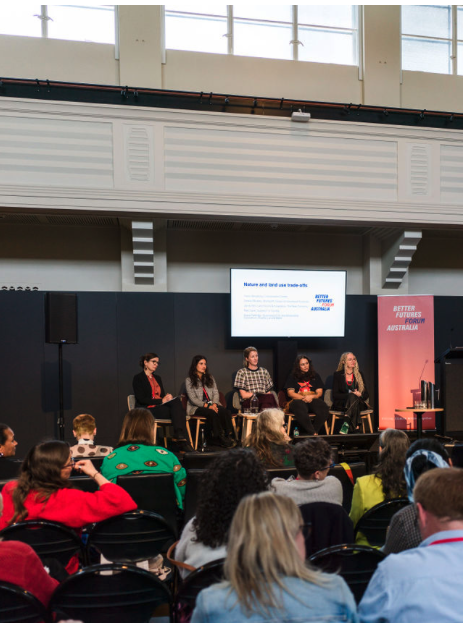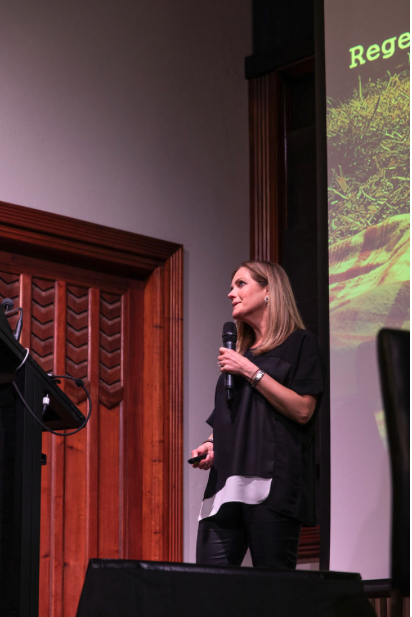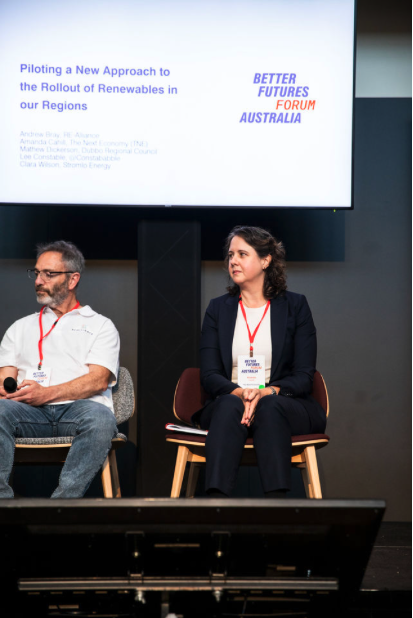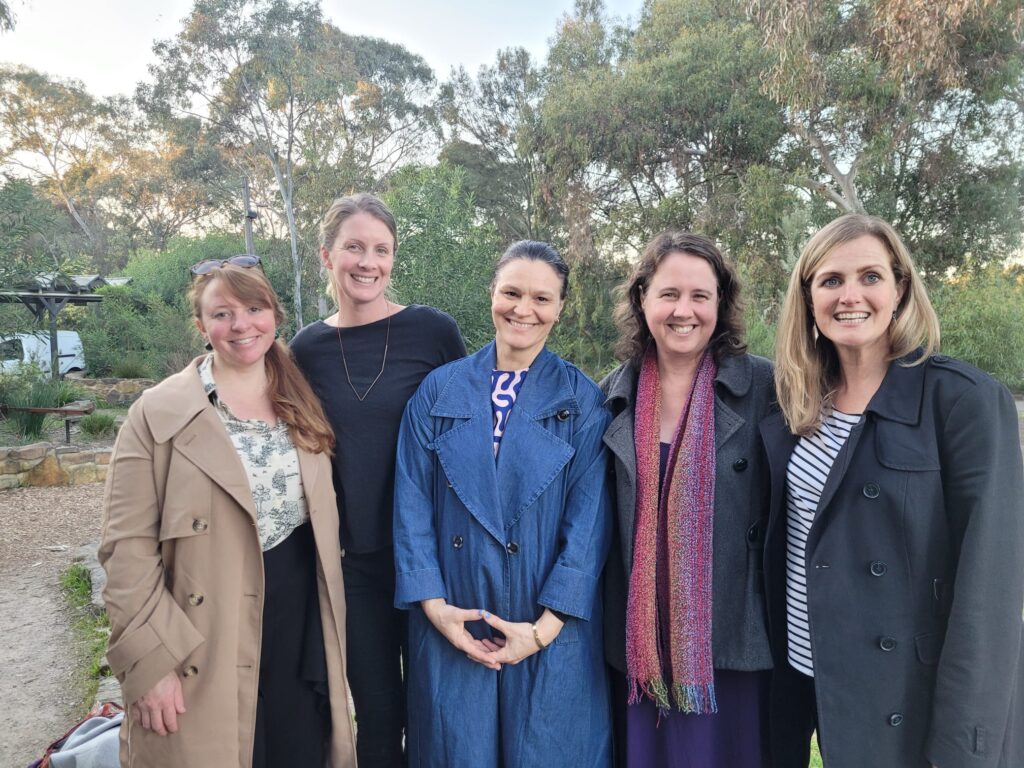(October 2024) Across Australia, communities are leading the transition to net zero – navigating multiple, compounding disruptions along the way – after years of minimal action or even discussion on climate change at a national level.



TNE’s Jacqui Bell, Dr Katherine Trebeck and Dr Amanda Cahill share key insights, ranging on topics from regional transition trends to nature and land use trade-offs to wellbeing economy principles, at the 2024 Better Futures Forum in September 2024. Photo credits: BFF/Gab Connolle
Here are five key trends or themes Dr Amanda Cahill, CEO of The Next Economy, and the team has observed in recent months:
- Missing champions: The lived experiences of communities actively navigating the transition—experimenting, innovating, and addressing local needs—are often missing from the national conversation. From a community group in Gympie installing solar panels on local infrastructure to support vulnerable populations, including domestic violence shelters, to energy companies focused on creating long-term community benefits like housing, there are so many people getting on with it. We should be celebrating and learning from them.
- Mixed signals: Regional communities are largely committed to the transition, but mixed signals from state and federal governments are not only frustrating they’re also undermining confidence to move forward with the real work. While there’s more investment in renewables and policies for net zero today than even a few years ago, new fossil fuel projects are still being approved even when expert bodies like the International Energy Agency say fossil fuel use must peak by 2025.
- Models questioned: One of the most striking trends is the growing shift in how people think about the economy. For example, beyond day-to-day concerns like the cost of living, more communities are questioning the broader purpose of the economic system itself. The key question being asked is: if the economy isn’t directly benefiting local communities, what is its real value? Another question that keeps coming up is why development proponents decide whether their project will have social and environmental impacts on a community instead of a single, independent process and regulator. This shift in perspective signals a deeper rethinking of what good economic development really looks like. Read more: Rethinking economic responses: tackling the root causes of today’s challenges
- Many forms: The net zero transition is taking different shapes for different communities. For example, Mount Isa in Queensland is exploring how they can help the world to decarbonise and what it will take to develop their critical minerals processing potential while navigating the complexities that come with it. Meanwhile, in Hay and Carrathool in NSW’s Riverina region, communities are exploring how they are moving towards a future in agriculture and land use that’s both resilient to the impacts of climate change while responding to the decarbonisation of global supply chains.
- Moving forward: We are now in the implementation phase of the net zero transition. It’s going to be challenging for a while, but we need to stay on course and remember that the decisions we make now really do matter. Right now, the infrastructure we invest in, the industries we promote and support, and how we build the capacity and mechanisms to ensure enduring community benefits, are all going to determine whether we reach our 2050 net zero goals – let alone the more ambitious ones that the science tells us we should be striving for. We can find a way forward that works for people and the planet.
The good news is, we have the knowledge, technology, skills and resources to draw from, we just need to get on with it.

